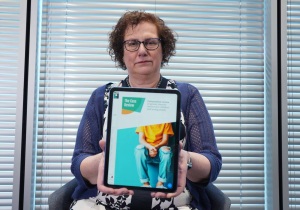 At Easter there were a number of stories about the ever-reducing size of chocolate eggs being sold for the same price as their previously larger versions. Apparently most chocolate bars are getting smaller, as are the size of other everyday items we might buy. The price might not be going up but you are getting less for your money. This is known as ‘shrinkflation’.
At Easter there were a number of stories about the ever-reducing size of chocolate eggs being sold for the same price as their previously larger versions. Apparently most chocolate bars are getting smaller, as are the size of other everyday items we might buy. The price might not be going up but you are getting less for your money. This is known as ‘shrinkflation’.
I have my own personal experience of shrinkflation: I was alarmed to be told at a recent medical appointment that I am no longer 6’6”, but a mere 6’5”. So you are now getting less of me for the same price! Not all shrinkflation is bad. I went from 20 stone in weight to 16 stone following a radical change in my diet when I was diagnosed as being Type 2 diabetic. Cutting out daily double packs of custard creams, donuts, large packs of Doritos Chilli Heatwave, six bananas a day, and much more may have had something to do with that rapid weight loss. (It might also have had just a little to do with me becoming diabetic in the first place …).
There is shrinkflation amongst our political classes, too. Whereas in the past a government had bid names and big hitters in its ministerial ranks, this has now shrunk to a presidential style of politics, with the Cabinet, that once replace the party, has now been replaced by the all-seeing wisdom of the Leader. I shout at the television or radio when allegedly bright party spokespeople preface their answers with: “Rishi has said that …” or “Keir has made it clear that …”. At least the Liberal Democrats don’t do this. After all, who would want to repeat anything that Ed Davey has to say! As the Beloved Leader of North Korea was saying just the other day: “Always look on the bright side of life”.
I’ve written more about party spokespeople in my column for next Wednesday’s Argus saying that it seems as though the Labour Party has a policy of fielding the most boring, uninspiring people to do the morning shows. In the past Labour politicians said things that would be remembered. Now they say things that can’t be recalled 10 seconds after it has come out of their mouths. Does Labour have a cunning plan to bore the electorate into submission, hoping that we will zone out before we realise that the party stands for little these days and has very little to say?










